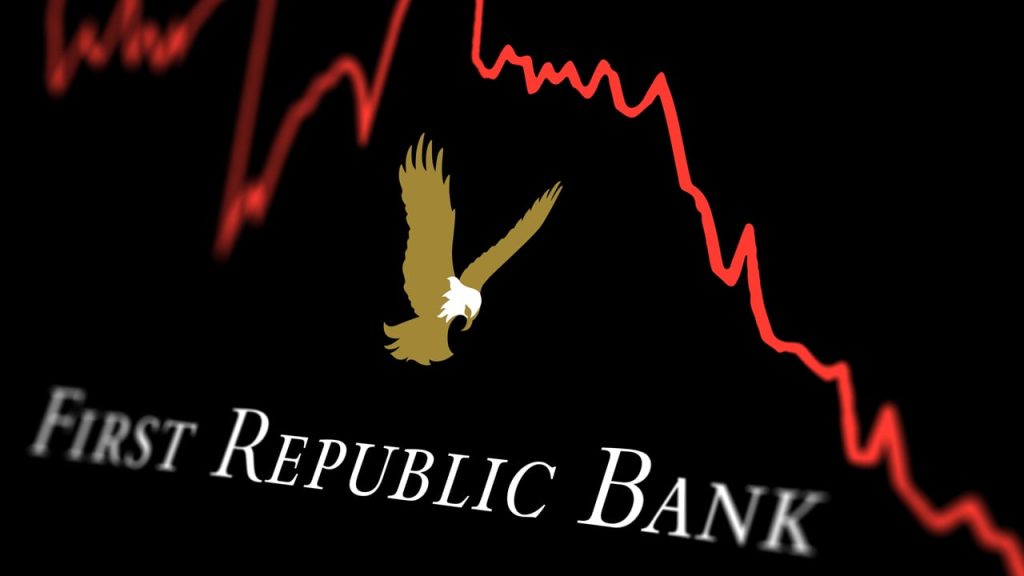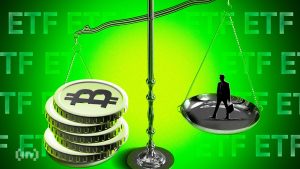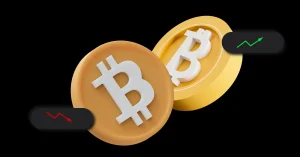SEC Probes First Republic Bank Executives for Insider Trading; Lawmakers Dump Bank’s Shares Before Collapse – Bitcoin News

After the second largest bank failure in history, the U.S. Securities and Exchange Commission (SEC) is reportedly investigating First Republic Bank executives for allegedly engaging in insider trading. Two sources have claimed that the securities regulator is scrutinizing the bank’s executives for making trades using confidential information. Although the sources have not named any specific individuals under investigation, they assert that the SEC is looking into the matter. Furthermore, reports indicate that U.S. lawmakers sold shares of the troubled bank before it collapsed and was acquired by JPMorgan Chase.
Securities Watchdog Investigates First Republic Execs
On May 1, 2023, the California Department of Financial Protection and Innovation (DFPI) took control of First Republic Bank, a San Francisco-based financial institution, and placed it under the receivership of the Federal Deposit Insurance Corporation (FDIC). With $229 billion in assets, this was the second largest bank failure in U.S. history, following the 2008 collapse of Washington Mutual (Wamu).
In the wake of the First Republic Bank’s collapse, Sabrina Willmer and Austin Weinstein, reporters for Bloomberg, revealed that “two people familiar with the matter” disclosed that the Securities and Exchange Commission (SEC) is investigating the bank’s executives for potential insider trading schemes. This development comes on the heels of the SEC’s investigation into the executives of Silicon Valley Bank, whose failure resulted in the third-largest bank collapse in U.S. history.
According to Willmer and Weinstein, when they reached out to the SEC and JPMorgan Chase for comment on the alleged investigation into First Republic Bank, representatives from both entities “declined” to provide a statement. The sources who disclosed the investigation did not identify any specific executives from First Republic, and the reporters emphasized that no one from the bank has been accused of any misconduct.
U.S. Lawmakers Dump First Republic Shares Prior to Bank’s Failure
In addition to the information provided by Willmer and Weinstein’s sources, several other reports suggest that U.S. lawmakers sold off their shares in First Republic prior to its collapse. During the fallout of First Republic Bank, Florida Democrat Lois Frankel disclosed that she had sold her shares in the bank prior to its collapse and had instead invested in JPMorgan Chase. In an interview with CNN, Frankel explained that her stocks are “managed independently by a money manager who buys and sells stocks at his discretion.”
This isn’t the first time that U.S. officials have been accused of selling off stocks before a market crash. In the midst of the Covid-19 pandemic, several members of the United States Senate were accused of violating the 2012 STOCK Act. However, no charges were filed against the lawmakers and the cases were eventually closed. In a 2022 editorial, the New York Times reported that 97 members of the U.S. Congress had reported trades in companies that were “influenced by their committees.”
What are your thoughts on the recent allegations of insider trading by First Republic Bank executives and the reported sale of shares by U.S. lawmakers prior to the bank’s collapse?
Image Credits: Shutterstock, Pixabay, Wiki Commons, rarrarorro / Shutterstock.com
Disclaimer: This article is for informational purposes only. It is not a direct offer or solicitation of an offer to buy or sell, or a recommendation or endorsement of any products, services, or companies. Bitcoin.com does not provide investment, tax, legal, or accounting advice. Neither the company nor the author is responsible, directly or indirectly, for any damage or loss caused or alleged to be caused by or in connection with the use of or reliance on any content, goods or services mentioned in this article.















